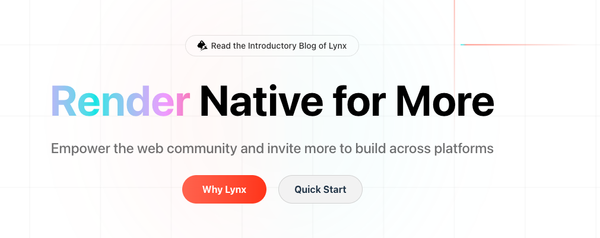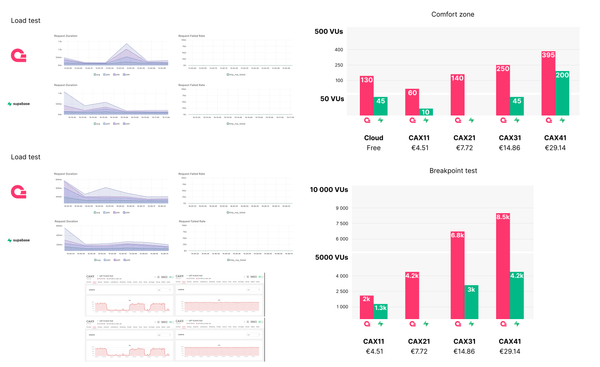NET MAUI (former Xamarin) vs. Flutter
Are you choosing technology to develop a mobile application? I bet you must have heard about .NET MAUI and Flutter. Each has unique advantages.
.NET MAUI, with its .NET roots, promises seamless integration and familiar C# development. Flutter, a modern competitor from Google, surprises with dynamic user interfaces and programmer-friendly Dart language.
This comparison isn't just a technical side-by-side; it's a guide to the real world, drawing on hands-on experience to navigate your application journey choices.
Let's explore the ecosystems, performance, and nuances of .NET MAUI and Flutter development to discover the path that best fits your project.
Xamarin end of life
As the mobile development landscape evolves, Xamarin's announced end of life and its transition to .NET MAUI.
- May 1, 2024 is the end of Xamarin Official Support
- May 14, 2024 is the end of .NET 7 official support
- August 31, 2024 is the retirement of Visual Studio for Mac
- April 2025 likely the latest time Apple App Store will accept Xamarin apps built with Xcode 15 (source)
- August 2025 likely the latest time Google Play Store will accept Xamarin apps targeting API 34 (source)
This is a last call for Xamarin app owners to consider their future strategy:
- Transition to .NET MAUI: Xamarin's evolution into .NET MAUI is aimed at unifying and enhancing Microsoft's development platform, offering a modern approach to cross-platform development. This transition necessitates Xamarin developers to migrate their applications, ensuring they continue to receive support and updates.
- Flutter as an Alternative: With Xamarin's end of life, Flutter emerges as a strong alternative, offering a robust and continuously evolving framework for building cross-platform applications. Developers might find Flutter's rich UI capabilities and performance advantages appealing, especially those seeking stability and a vibrant community support.
- Implications for Developers: For those invested in Xamarin, this phase signifies the need to reassess and adapt to .NET MAUI or explore alternative frameworks like Flutter. It underscores the importance of flexibility in choosing development tools that align with project requirements and future tech trends.
This transition period is pivotal for developers to strategize and make informed decisions, balancing between embracing .NET MAUI's new opportunities or leveraging Flutter's established ecosystem for their mobile app development needs.
Xamarin migration happy paths
I have assisted clients in addressing the challenges of outdated Xamarin applications. While it might seem easier to push for an immediate upgrade to new technology, the most successful transitions follow a more measured approach. First, I guide in releasing 2-3 critical updates using Xamarin to stabilize the existing application and ensure it continues to function effectively. Next, work with them to carefully select the most suitable new technology for their needs.
Making a choice: Flutter vs. .NET MAUI
When deciding between Flutter and .NET MAUI, professionals weigh several factors:
- Project Requirements: Flutter excels in creating highly customizable, visually appealing UIs with its widget-based approach. .NET MAUI, leveraging .NET, is ideal for projects requiring extensive Microsoft ecosystem integration.
- Team Expertise: Flutter uses Dart, while .NET MAUI is based on C#. The team's familiarity with these languages can influence the choice.
- Future Outlook: With .NET MAUI transitioning to .NET MAUI, its future is closely tied to the evolving .NET ecosystem. Flutter's growth is fueled by Google's backing and a vibrant community, making it a compelling choice for cross-platform development.
- Performance and Efficiency: Flutter's direct compilation to native code offers superior runtime performance. .NET MAUI, while efficient, may have slightly longer build times due to its reliance on the .NET framework.
Professionals recommend Flutter for projects prioritizing innovative UIs and quick development cycles. .NET MAUI is suited for projects deeply integrated with the .NET ecosystem or where team expertise aligns with C#. Considerations should also include the strategic direction of .NET MAUI .NET MAUI transition and Flutter's expanding toolkit.
Plugin Challenges
In the transition from Xamarin to .NET MAUI, a significant challenge faced by developers was the outdated nature of some plugins originally designed for Xamarin. These plugins, crucial for integrating various functionalities into mobile apps, such as payment gateways or services specific to manufacturers like Huawei, had not been updated to be fully compatible with the .NET MAUI framework. This incompatibility stems from the fundamental architectural and technological advancements introduced with .NET MAUI, which aimed to provide a more unified and efficient approach to cross-platform mobile development.
Conclusion
Reflecting on the discussion, choosing between .NET MAUI and Flutter hinges on several key considerations including project requirements, team expertise, and the anticipated future of the development platform. .NET MAUI offers deep .NET integration, appealing to those familiar with C# and seeking to leverage Microsoft's ecosystem. Conversely, Flutter, with its dynamic UI capabilities and efficient Dart coding, caters to projects prioritizing innovative interfaces and rapid development cycles. The decision ultimately aligns with which platform best complements your project's goals, team skills, and the evolving landscape of mobile app development.
If you have an old Xamarin app, you likely need to deliver critical updates before initiating the migration process. If you're not tied to Microsoft's technology stack, it is worth exploring Flutter first, but if your team is specialized in C#, .NET MAUI could be the choice.
You should also remember that even though .NET MAUI has official migration tools from Xamarin, it's still akin to writing 80% of a new app. This means careful planning and resource allocation are crucial to ensure a successful transition.



